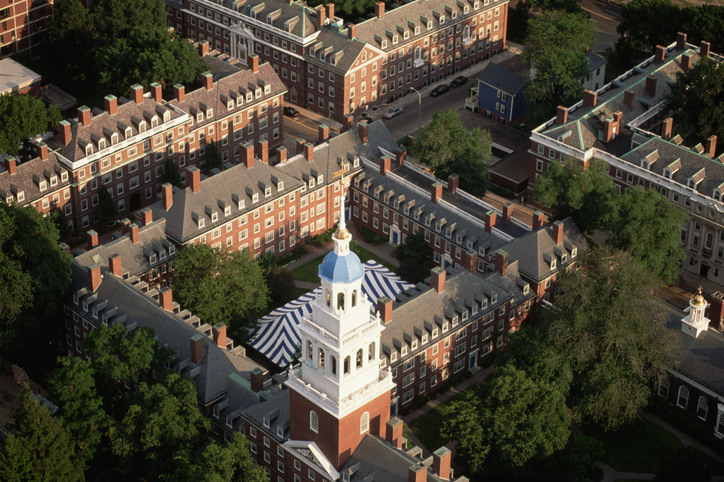A U.S. judge overseeing lawsuits accusing Harvard University of antisemitism on Tuesday narrowed but refused to dismiss a case by two advocacy groups accusing the Ivy League school of making it unbearable for Jewish students to study there.
U.S. District Judge Richard Stearns said the Louis D. Brandeis Center for Human Rights Under Law and Jewish Americans for Fairness in Education can pursue a hostile educational environment claim on behalf of students.
The Boston-based judge dismissed claims that Harvard directly discriminated against Jewish and Israeli students, and retaliated against them for complaining about antisemitism.
In August, Stearns refused to dismiss a related lawsuit by Jewish students who accused Harvard of letting its Cambridge, Massachusetts, campus become a bastion of rampant antisemitism.
Both lawsuits accused Harvard of violating Title VI of the Civil Rights Act of 1964, which bars federal funds recipients from allowing discrimination based on race, religion and national origin, and sought to stop further violations.
The lawsuits are among many accusing major universities of allowing and encouraging antisemitism following the October 2023 outbreak of war in Gaza between Israel and Hamas.
Tuesday’s decision primarily concerned Harvard’s alleged mishandling of incidents from the spring and autumn of 2023.
In one, a Jewish lecturer at Harvard’s Kennedy School allegedly pressured students in a course on organizing community action to abandon a project predicated on the existence of a “liberal-Jewish democracy,” because associating “Jewish” with “democracy” created an “unsafe space” for classmates.
The other concerned a viral “die-in” near Harvard Business School where attendees accused Israel of war crimes, chanted antisemitic slogans and allegedly physically assaulted an Israeli-Jewish student.
Stearns said the plaintiffs can try to prove Harvard’s “deliberate indifference” to harassment, reflecting its failure to discipline the professor and alleged lack of speed investigating various incidents.
“To conclude that the mere act of launching an investigation without any further follow-through necessarily defeats a deliberate indifference claim, would be to prioritize form over function,” Stearns wrote.
Stearns nonetheless found no plausible accusations that Harvard’s responses reflected anti-Jewish or anti-Israeli animus, or retaliation.
Harvard spokesman Jason Newton said antisemitism has no place on campus, and that the school has taken steps to support its Jewish community, encourage civil dialogue and strengthen disciplinary policies and rules on using public spaces.
“This work is ongoing, and Harvard is fully committed to it and confident we are moving in the right direction,” he said.
A lawyer for the plaintiffs had no immediate comment.
(Reuters)




















